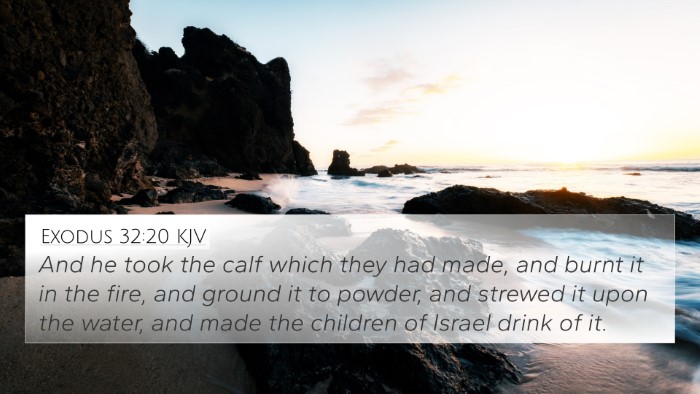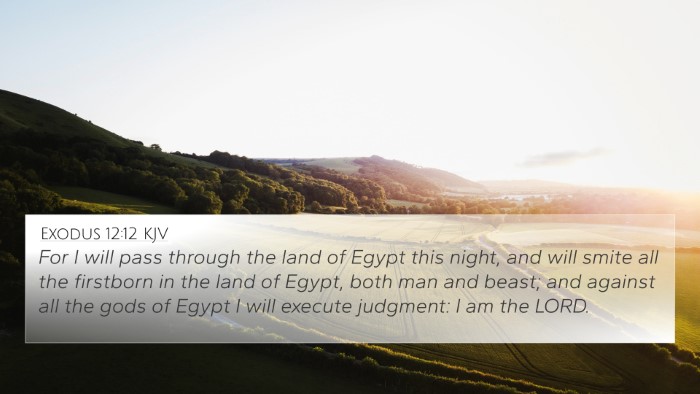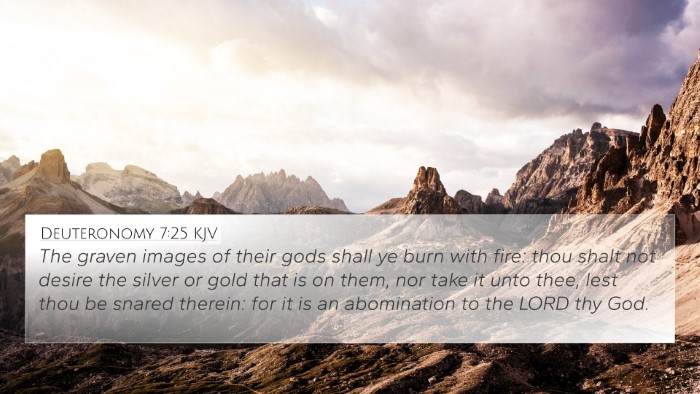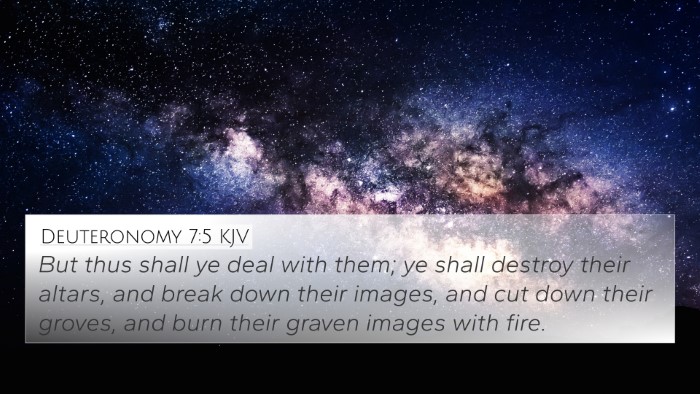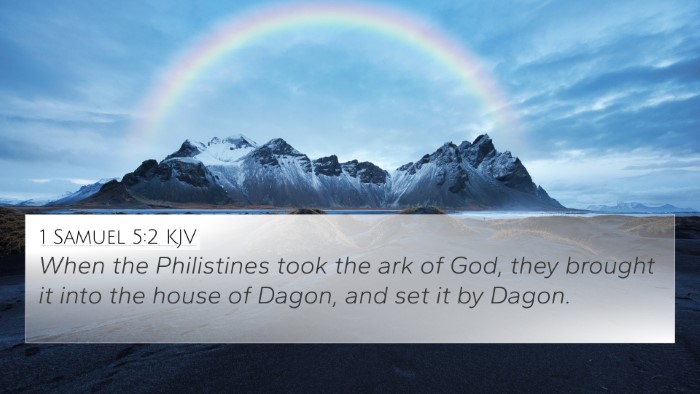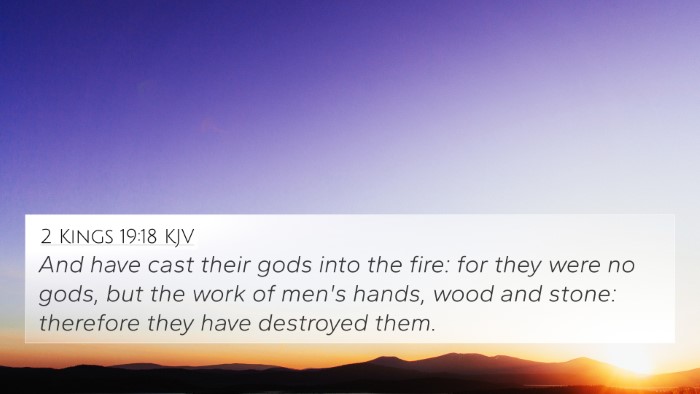Understanding 1 Chronicles 14:12
Verse Reference: 1 Chronicles 14:12
Text: "And when they had left their gods there, David gave a commandment, and they were burned with fire."
Interpretation of the Verse
This verse reflects a significant moment in the narrative of David's reign as king of Israel. The context of this passage occurs after David's victory over the Philistines. In this victory, God demonstrated His power by leading David to triumph. The burning of the Philistine idols signifies a clear rejection of idolatry and underscores the exclusivity of worship that is due to the Lord.
Commentary Insights
-
Matthew Henry:
Henry emphasizes the act of destroying idols as a necessary step in maintaining the purity of worship in Israel. He notes that the burning of these images not only fulfills a prophetic expectation but also serves to cleanse the nation from influences that could lead them away from God. It is a practical demonstration that David sought to honor God's supremacy in the affairs of Israel.
-
Albert Barnes:
Barnes remarks on the significance of the action taken by David in this instance. He highlights the importance of setting an example for the people, showing that the leader should align his actions with divine command. His assertion is that by burning the gods of the Philistines, David is attempting to eradicate a form of spiritual pollution, which is vital for the spiritual health of the nation.
-
Adam Clarke:
Clarke provides an analysis that focuses on the implications of the destruction of these gods, pointing out the symbolism in such an act. Clarke argues that the burning of false gods serves to reinforce the message that there is no power outside of the true God of Israel. It contextualizes the message of monotheism conveyed throughout the scriptures, standing in stark contrast to the pluralistic worship exhibited by neighboring nations.
Connections to Other Bible Verses
This verse invites several cross-references that illustrate similar themes of idol destruction and the call to exclusive worship of God, signifying a broader biblical narrative and the importance of fidelity to God's commandments. The following verses can be linked:
- 1 Samuel 5:3-5: The fall of Dagon before the Ark of the Covenant, illustrating God’s supremacy over foreign gods.
- Exodus 20:3-5: The commandment against having other gods, foundational for Israel's identity.
- Deuteronomy 7:5: Instructions to destroy the altars of the peoples they conquer, demonstrating God's intolerance for idolatry.
- 2 Kings 10:28-29: Jehu's destruction of Baal worship, paralleling David’s actions in purging Israel of idolatry.
- Isaiah 30:22: The call to reject idols and false teachings, affirming God’s desire for purity in worship.
- Jeremiah 10:14: A reminder of the folly of idol worship, which emphasizes the void of power in false gods.
- Acts 19:19: The burning of magical books in Ephesus, reflecting a New Testament application of rejecting false practices.
Practical Applications
1 Chronicles 14:12 serves as an enduring reminder for contemporary readers regarding the nature of worship and the dangers of idolatry in various forms. The application lies in recognizing modern-day idols that distract from exclusive devotion to God.
- Reflect: Identify any influential aspects in life that may act as idols, diverting focus away from God.
- Act: Commit to removing such distractions, akin to how David removed the idols of the Philistines.
- Engage: Involve oneself in communal worship practices that glorify God alone, ensuring that personal devotion aligns with biblical teachings.
Thematic Bible Verse Connections
The overarching theme in this verse emphasizes the necessity of eradicating all forms of idolatry to ensure a pure and devoted relationship with God. This connects poignantly to broader biblical themes regarding fidelity, worship, and the consequences of straying from divine directives.
Tools for Further Study
For those interested in exploring this theme further, various tools for Bible cross-referencing are available:
- Bible Concordance: A valuable resource that provides a comprehensive list of terms and their locations in scripture.
- Cross-Reference Bible Study: Methods to delve deeper into the connections among scriptures for a holistic understanding of biblical texts.
- Bible Reference Resources: Guides that assist in identifying and examining thematic connections throughout the Bible.
- How to Use Bible Cross-References: Understanding how to effectively navigate connections between verses for in-depth study and sermon preparation.
Conclusion
1 Chronicles 14:12 teaches about leadership, biblical fidelity, and the importance of confronting and removing idolatry. As believers engage in study and meditation on this text, may they be inspired to cultivate a heart of worship that honors God exclusively, drawing from cross-references that enrich their understanding and practice of faith.



